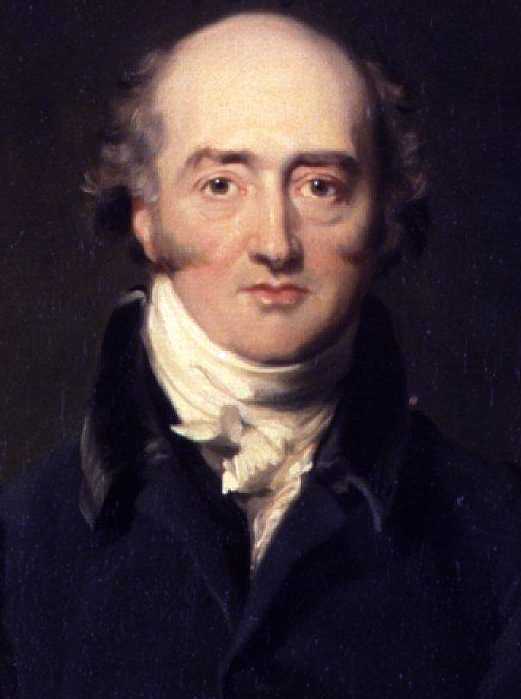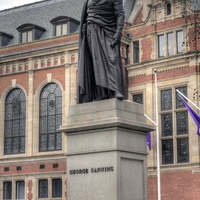How to cite this page Comment citer cette page
Canning, George
Person
- Media metadata | Métadonnées multimédias
- has biography | a une biographie
-
British Prime Minister, statesman, and pro-slavery politician in the late eighteenth and early nineteenth centuries.
Canning was an important opponent of the abolition of slavery in the 1820s, and his views on the subject have been discussed at length by the historian Michael Taylor. As Member of Parliament for Liverpool between 1812 and 1823, one of his major political patrons had been the absentee Guyanese slave-owner and politician John Gladstone (1764-1851). Canning also enjoyed a close personal and political friendship with Charles Rose Ellis, Lord Seaford (1771-1845), who was a leading figure in the West India interest and an absentee Jamaican slave-owner. As Foreign Secretary and Leader of the House of Commons, Canning was responsible for thwarting Thomas Fowell Buxton's early efforts to introduce a plan for abolition in May 1823. His opposition to emancipation was often couched explicitly in ideas of racial inferiority: in a speech to the Commons on amelioration in March 1824, for instance, he argued 'In dealing with the n****, Sir, we must remember that we are dealing with a being possessing the form and strength of a man, but the intellect only of a child'. - was born | est né
- 11 April 1770
- died in | est mort par
- 8 August 1827
- has nationality | a la nationalité
- United Kingdom of Great Britain and Ireland
- has type | est de type
- depicted
- is referred to by | est référencé par
- Wikipedia
- Hansard
- History of Parliament Online
- National Portrait Gallery
- Legacies of British Slavery - John Gladstone
- Legacies of British Slavery - Charles Rose Ellis, Lord Seaford
- Hansard - 'Amelioration Of The Condition Of The Slave Population In The West Indies' 16 March 1824 vol 10 cc 1103
- Michael Taylor, The Interest: How the British Establishment Resisted the Abolition of Slavery (London: Vintage, 2021)


